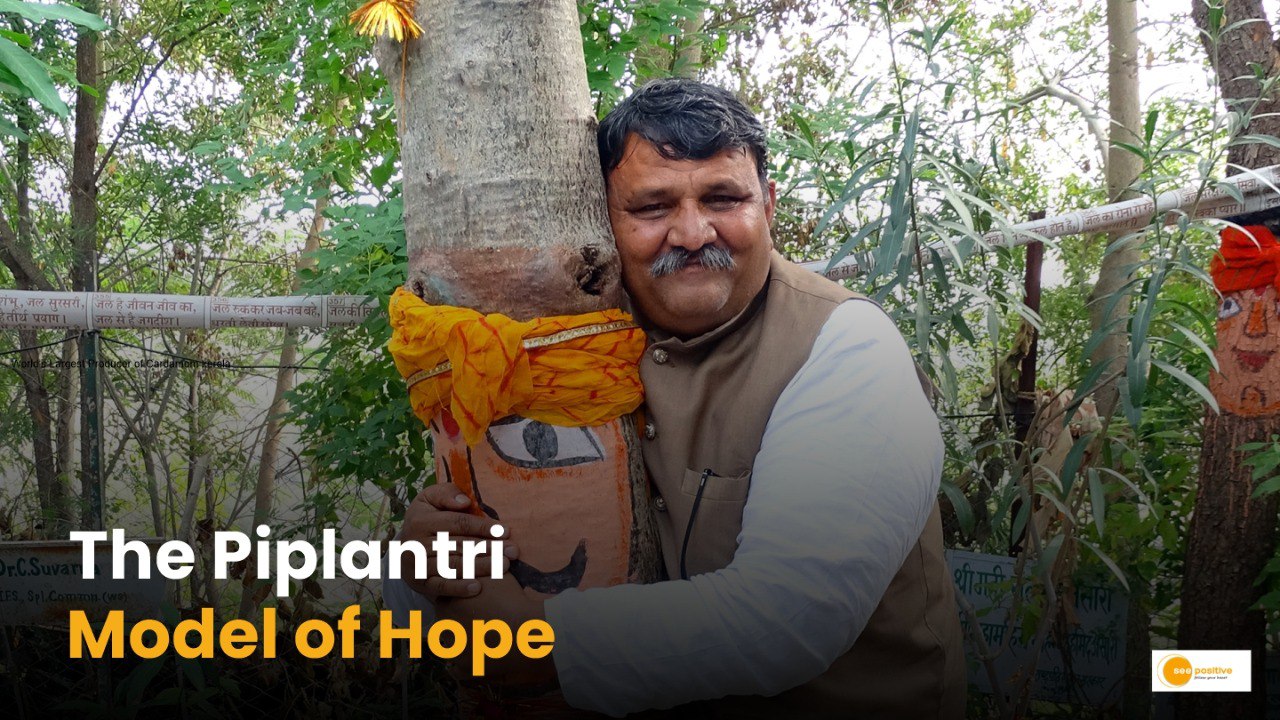Nestled in the Rajsamand district of Rajasthan, the village of Piplantri stands as a shining example. This village shows how a small rural community can spark environmental and social transformation through grassroots action. What sets this village apart is a heartwarming and powerful tradition. This tradition is that of planting 111 saplings every time a girl child is born.
The Beginning: A Father’s Tribute
This unique initiative took root in the early 2000s. Thanks to the vision of Shyam Sundar Paliwal, the former sarpanch of Piplantri. He was devastated by the tragic loss of his young daughter Kiran, who died at the age of 18 due to dehydration. The former sarpanch resolved to turn his grief into positive change. He was determined to ensure that no family would suffer a similar fate due to water scarcity. He began a movement that would intertwine environmental regeneration with social upliftment.
The Practice: A Blend of Tradition and Sustainability
For every girl born in Piplantri, 111 trees are planted, a number that carries symbolic value in Indian culture and reflects prosperity and goodwill. This is more than just a gesture—it is a community-wide pledge to nurture both the child and the trees.
Each family also signs an affidavit agreeing not to marry off their daughter before the legal age and to support her education. This powerful blend of ecological action and social commitment has gradually reshaped the community’s perspective on the value of girl children, in a region where gender bias has traditionally run deep.
Tangible Environmental Benefits
The transformation brought about by this initiative is visible across Piplantri’s landscape. The trees—ranging from neem and sheesham to mango and bamboo—have:
- Improved soil health and significantly reduced erosion
- Helped recharge groundwater by promoting better water retention
- Created a microclimate that supports humidity and cooler temperatures in the otherwise arid region
These changes have made the village more resilient to climate extremes and water shortages, proving how ecological balance and human action go hand in hand.
A Thriving Ecosystem
As the green cover expanded, so did biodiversity. The new forests provide habitats for birds, insects, and small animals, contributing to a richer and more balanced ecosystem. What was once degraded, drought-prone land has evolved into a living testament to ecological revival.
Social and Economic Impact
The benefits of Piplantri’s green revolution are not just ecological. There has been a shift in attitudes toward the birth of girls, now celebrated as a blessing rather than a burden. Families take collective pride in their role as stewards of both their daughters and the trees planted in their name.
Economically, the initiative has opened new avenues:
- Sale of timber, medicinal plants, and aloe vera, which is grown around the saplings to protect them from termites, has generated income for many families.
- The village has become a model of sustainable development, drawing researchers, environmentalists, and tourists—thereby boosting the local economy and employment opportunities.
A Model for the Nation
Piplantri’s approach offers a blueprint for sustainable and inclusive development that other rural communities can emulate. The model harmonizes environmental conservation with social empowerment and economic growth—proving that even the smallest villages can lead the way in addressing global challenges like climate change, water scarcity, and gender inequality.
What began as a personal tribute has grown into a movement of hope, resilience, and renewal. In Piplantri, every new life is celebrated by breathing life back into the earth. The village’s story is a powerful reminder that lasting change often starts with a single, heartfelt idea—and that with unity and care, even the most modest community can become a global inspiration.


